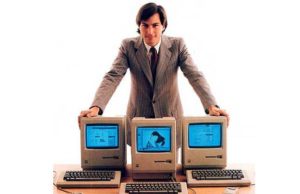When attempting to find the market sweet spot for your startup, entrepreneurs often walk the line of embracing history, and forging their own path. As the late Steve Jobs so eloquently stated,
“Your time is limited, so don’t waste it living someone else’s life. Don’t be trapped by dogma – which is living with the results of other people’s thinking. Don’t let the noise of other’s opinions drown out your own inner voice. And most important, have the courage to follow your heart and intuition.”
Obviously, there is no denying the success that Steve Jobs enjoyed, and the history of Apple has been well chronicled. However, not everyone can create history, and there is a lot to be learned from it when evaluating a potential business model.
How to Identify a Product-Market Fit

When attempting to find an ideal market for your product or service, it is imperative to understand what the competition is doing, and how you can iterate or improve upon it to meet a unique customer need. Much of this is done by talking to prospective customers, figuring out the products they use, and what they would want from an ideal product.
Often, people don’t know what they’re looking for, but you can see, when talking to them face to face, and seeing their reactions, if your idea is unique and exciting. Steve Jobs once asserted that people don’t know what they want until they see it.
However, it is important to see how a potential customer, or preferably hundreds of prospective customers’ reactions to your product in order to determine if there really is a fit for what you’re offering. In the case of Jobs, the reaction to the product was obvious and Apple now is one of the most recognized brands in the world.
Cause Marketing Works
There have been numerous examples in recent history of entrepreneurs who based their marketing efforts on supporting a cause. Some of the more notable that come to mind are Toms and Tickets for Charity. In both cases, the success of the offering was almost wholly reliant on the cause that they supported.
In the case of Toms, for every pair of shoes purchased, another is given to a person in need. Without this sort of altruistic approach, the simply-crafted shoes would more than likely have remained anonymous.
Tickets for Charity launched in 2007, with the idea of reselling tickets purchased by corporations that would otherwise go unused. Part of the proceeds would then go to various charitable organizations that these companies would be proud to support.
This business model is an excellent example of both identifying a product-market fit and leveraging cause marketing. TFC founder, Jord Poster found that 30-70% of the event tickets corporations purchase each year go unused. He also realized that these same corporations also had strong charitable ties and made significant amounts of donations to charitable organizations.
By providing an easy way for these companies to give back without costing them any extra money, and with his company facilitating the entire process, Poster found his market sweet spot.
Company Culture Matters
There are numerous examples of crazy company cultures out there. Google is among the most prominent of those with their sleep pods, infinity pools, wall-to-wall whiteboards, among other Googley things. Whether it is global juggernauts like Google and Amazon, Successful shoe moguls Zappos, or small-time operations everywhere, company culture plays a huge role in a company’s success.
It is important to hire those who are on board with your company vision and values, and do their best to perpetrate it. Those who detract from a company’s virtues can be cancerous to the overall culture, and have a negative ripple effect on others. In the words of Amazon CEO Jeff Bezos, “I’d rather interview 50 people and not hire anyone than hire the wrong person”. Employees shape company culture. Company culture determines company success.
Emulating Inspiring Entrepreneurs
While the vast majority of us will never be as successful as these inspiring modern-day entrepreneurs, we can certainly learn from their achievements. Get to know your customers, figure out what they want, find a cause they believe in, and put the right people in place to bring it all together.
Don’t get discouraged if your idea doesn’t come to fruition right away, or when you meet with opposition. There have been many shocking starts to successful businesses. Why not us?


Hi, this is a comment.
To get started with moderating, editing, and deleting comments, please visit the Comments screen in the dashboard.
Commenter avatars come from Gravatar.